Born: 14 November 1889
Place of Birth: Allahabad
Parents: Motilal Nehru (father) and Swaruprani Thussu (mother)
Spouse: Kamala Nehru
Children: Indira Gandhi
Education: Harrow School, London; Trinity College, Cambridge; Inns of Court School of Law, London
Associations: Indian National Congress
Political Ideology: Nationalism; Socialism; Democracy; Communist influences
Religious Beliefs: Hinduism
Publications: The Discovery of India, Glimpses of World History, Toward Freedom, Letters from a Father to His Daughter
Passed Away: 27 May 1964
Memorial: Shantivan, New Delhi
Jawaharlal Nehru was the first Prime Minister of independent India. He was a member the Congress Party that led the freedom movement against the British rule. He was the chief framer of domestic and international policies during his term as PM between 1947 and 1964. It was under Nehru's supervision that India launched its first Five-Year Plan in 1951. Nehru was one of the architects to steer the nascent nation towards the brilliance envisioned by countless revolutionaries of the Indian Freedom struggle.
Childhood & Early Life
Jawaharlal Nehru was born on 14 November 1889, in a wealthy Kashmiri Brahmin family in Allahabad, Uttar Pradesh. His father, Motilal Nehru was a renowned advocate and also an influential political activist. Nehru family was elitist in most of their practices and English was spoken and encouraged. His father, Motilal Nehru appointed English and Scottish teachers to supervise his children’s education at home.
For higher education, young Nehru was sent to Harrow school, then later to Cambridge University in England to obtain a degree in natural sciences. After spending two years at the Inner Temple, London, he qualified as a barrister. During his stay in London, Nehru studied subjects like literature, politics, economics, and history. He got attracted to the ideas of liberalism, socialism and nationalism. In 1912, he returned to India and joined the Allahabad High Court Bar.
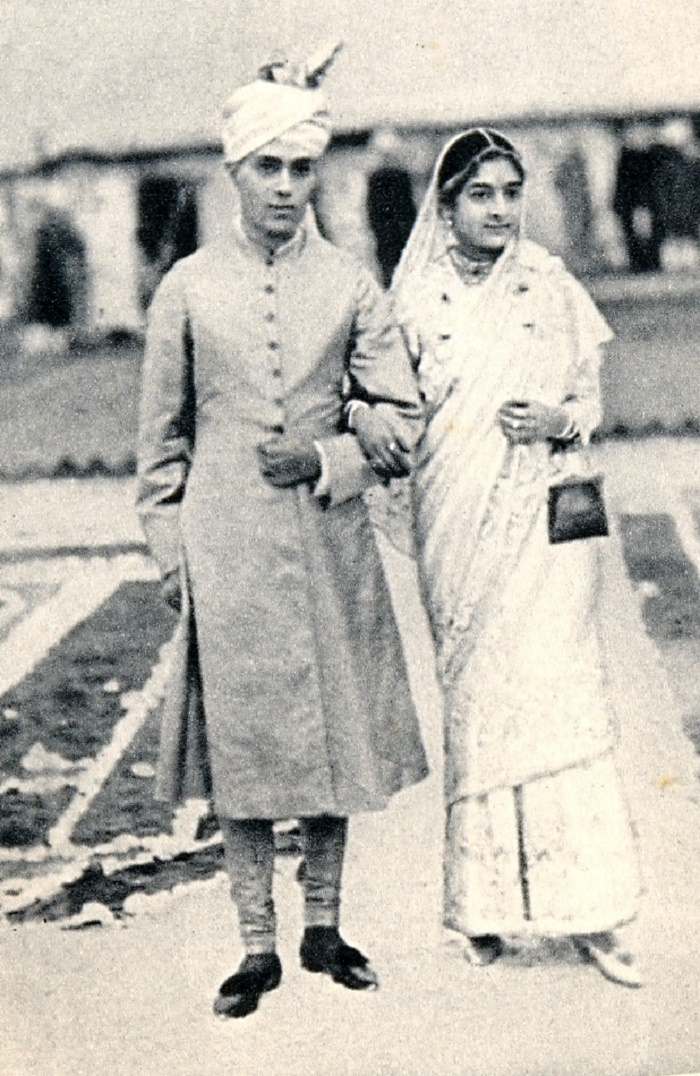
Image Credit: abhisays.com
Nehru got married to Kamala Kaul on 8 February, 1916. Brought up in a traditional Hindu Brahmin family, Kamala felt an outsider amongst the progressive Nehru family but tried her best to adapt to the family ethos and values. During the Non-Cooperation movement of 1921, Kamala played a vital role by organizing groups of women and picketing shops selling foreign cloth and liquor in Allahabad. On19 November, 1917 she gave birth to a daughter, who came to be known as Indira Priyadarshini. Kamala died from tuberculosis in Switzerland on February 28, 1936, while Jawaharlal Nehru was in prison.
Political Career
His Role in Freedom Struggle
Although he dabbled in political affairs since his return to India, by participating in Indian National Congress’ sessions and in Besant’s Home Rule Movement, Nehru whole heartedly embraced a political career only in 1919 in the wake of the Jallianwallah bagh Massacre. He followed Gandhi’s directives and was imprisoned for participating in the first civil disobedience campaign as general secretary of the United Provinces Congress Committee in 1921. His time in jail helped him achieve a deeper understanding of the Gandhian philosophy and the nuances of the non-cooperation movement. He was moved by Gandhi's approach of dealing with caste and "untouchability".
With time, Nehru emerged as a popular and influential nationalist leader, particularly in Northern India. He was elected as the president of the Allahabad municipal corporation in 1920.
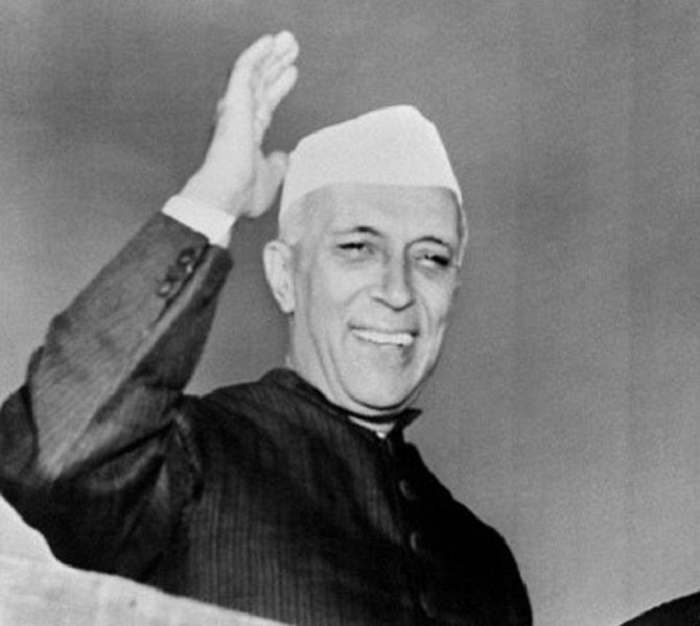
Image Credit: mid-day.com
His loyalty to Congress remained unwavering in the face of the rift created in the party due to Gandhi’s decision to adjourn the Non-cooperation movement post Chauri Chaura incident. He refused to move to the Swaraj Party established by his father and Chittaranjan Das in 1922.
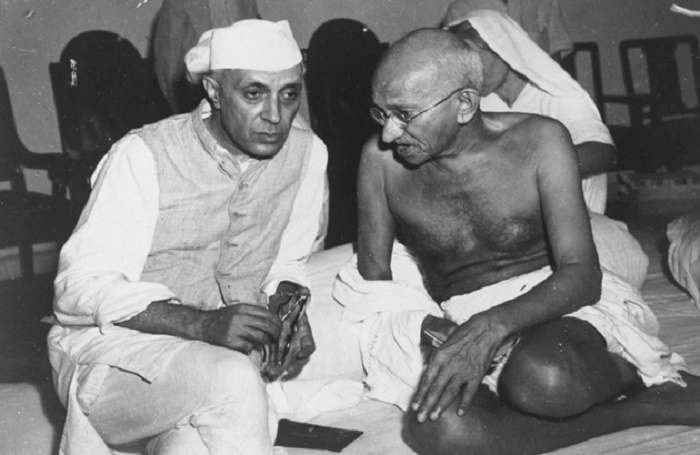
Image Credit: abhisays.com
Jawaharlal Nehru travelled to European nations like Germany, France and the Soviet Union in 1926 with his family and sought meetings with several Communists, Socialists, and radical leaders from Asia and Africa. Nehru was also impressed with the economic system of the communist Soviet Union and wished to apply the same in his own country. In 1927, he became a member of the League against Imperialism created in Brussels, the capital city of Belgium.
During the Guwahati Session of the Congress in 1928, Mahatma Gandhi announced that the Congress would launch a massive movement if the British did not grant dominion status to India within the next two years. It was believed that under the pressure of Nehru and Subhash Chandra Bose, the deadline was reduced to one year. Jawaharlal Nehru criticized the famous "Nehru Report" prepared by his father Motilal Nehru in 1928 that favored the concept of a "dominion status for India within the British rule".
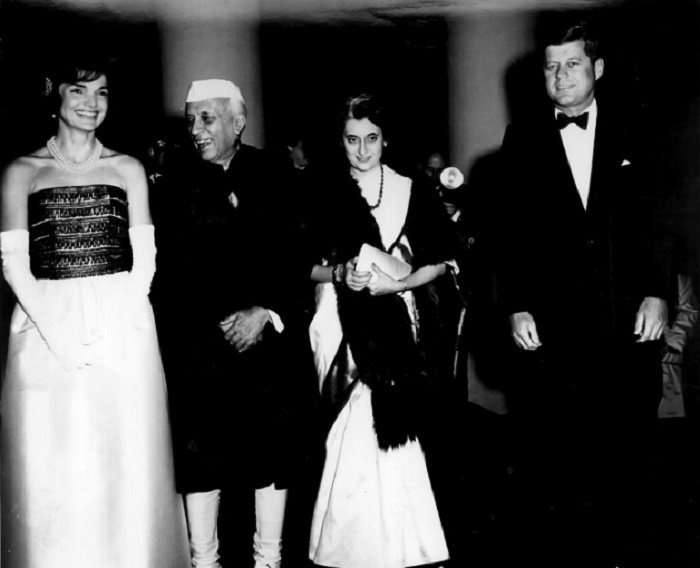
In 1930 Mahatma Gandhi supported the name of Nehru as the next president of the Congress. The decision was also an attempt to abate the intensity of "communism" in the Congress. The same year, Nehru was arrested for the violation of the Salt Law.
In 1936, Nehru was re-elected as the president of the Indian National Congress. Sources suggest that a heated argument between the old and young leaders took place in the Lucknow Session of the party. The young and "new-gen" leaders of the party had advocated for an ideology, based on the concepts of Socialism.
In the 1942 Quit India Movement, Nehru vehemently rallied for ‘Purna Swaraj ‘or complete political independence for India. He was arrested on August 8 of the same year and was imprisoned till June 15, 1945. Post his release, he threw himself into a series of rigorous discussions and negotiations with the British Government that ultimately led to attainment of freedom in 1947. Nehru fought hard against the proposed partitioning of the country by the last Viceroy Lord Mountbatten. He failed to obtain enough support from Mohammed Jinnah, the leader of Muslim League and reluctantly gave in to it.
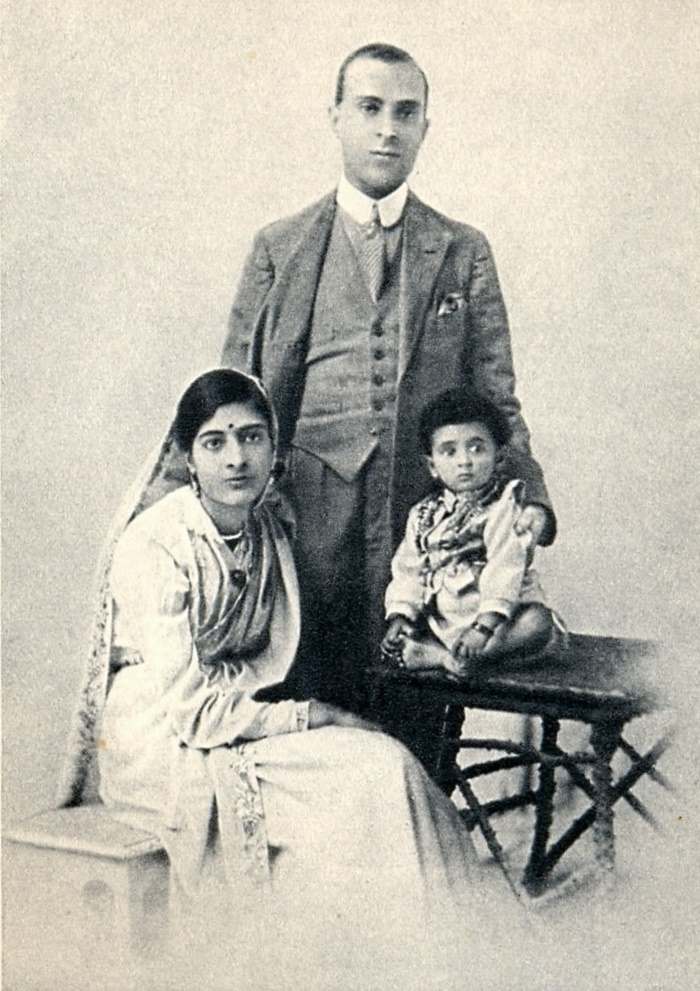
Image Credit: abhisays.com
Nehru as Prime Minister of India
On August 15, 1947, a free India was born. Nehru was elected as the first Prime Minister of independent India. He was the first PM to hoist the national flag and make his iconic speech "Tryst with Destiny" from the ramparts of the Lal Quila (Red Fort). The time had come to implement his ideas and build a healthy nation. Nehru’s stint as PM of India is characterised by is secular and liberalist approach. He carried out his vision to carry the young India towards the road of technological and scientific excellence with great zeal. He implemented a number of socio-economic reforms and paved the way for rapid industrialization. In the year 1949, Jawaharlal Nehru made his first visit to the United States, seeking a solution to India's urgent food shortage. In 1951, Jawaharlal Nehru launched the country's "First Five-Year Plan" emphasizing on the increase in the agricultural output.
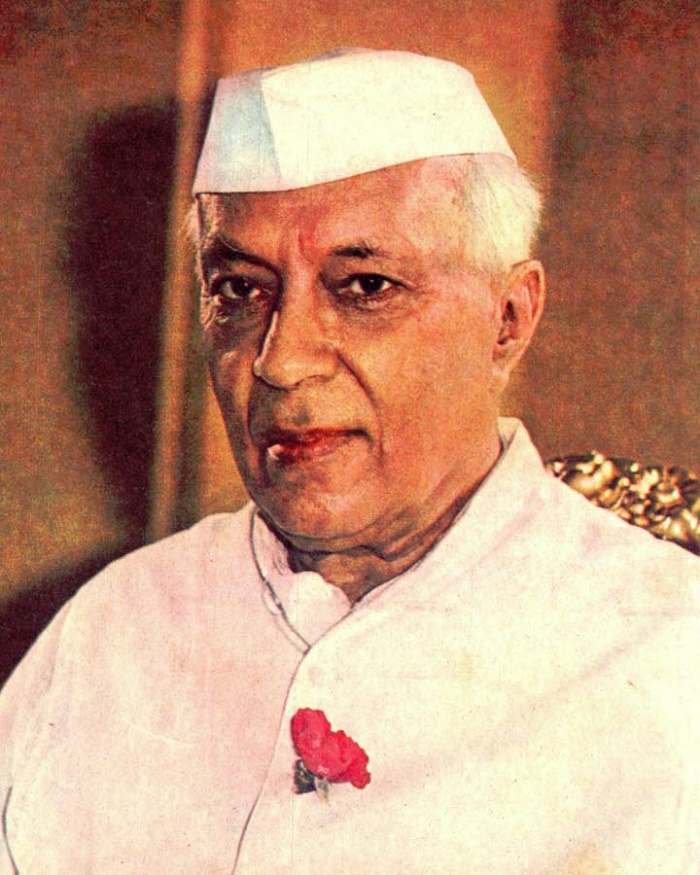
Image Credit: http://cdn.quotationof.com/images/jawaharlal-nehru-1.jpg
Nehru's Foreign Policy
Jawaharlal Nehru was supporter of the anti-imperialist policy. He extended his support for the independence of small and colonized nations of the world. He was also one of the prominent architects of the Non-Aligment Movement (NAM). Nehru's predominant role in substantiating India's role in the foundation of institutions like NAM had surprised the then stalwarts of international politics. He advocated the policy of Non-Alignment during the cold war and India, subsequently, kept itself aloof from being in the process of "global bifurcation".
Sino-Indian War of 1962
The roots of the Sino-Indian conflict in 1962 lie in several facts of history. The Indian Government had granted asylum to Dalai Lama after his banishment following the Tibet uprising in 1959 and it irked China. In addition to that, boundary disputes over the MacMohan Line in Arunachal Pradesh and Aksai Chin area in Ladakh, Kashmir also added to India-Sino bitterness. Nehru and his Chinese counterpart, Premiere Zhou Enlai were unable to reach a political accord on the 3,225-kilometre-long disputed border issue.
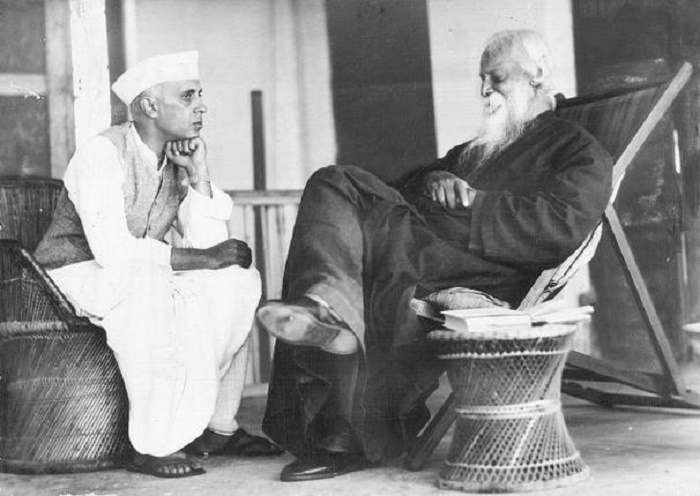
Image Credit: abhisays.com
On October 20, 1962, the People’s Liberation Army attacked India simultaneously from two disputed fronts. They captured Rezang la in Chushul and Tawang in Arunachal Pradesh. A month into the armed confrontation, the Chinese declared a ceasefire on November 20, 1962 but the deep sense of mistrust strained the political relations between the two country ever since. The blame for this defeat squarely fell on Nehru and his Defence Minister V.K. Krishna Menon’s shoulders for implementing a naïve and poor strategy.
Legacy
As a great believer in pluralism, socialism and democracy, Nehru developed India as a secular nation true to its thousand years old cultural heritage. He had immense love for children and his birthday, November 14, is celebrated as Children’s day in India. He paved way for India’s educational exaltation by envisioning the country’s top tier institutions like Indian Institute of Technology, All India Institute of Medical Sciences and India’s first space program. He served as the primary political inspiration to his daughter Indira Gandhi who became the PM of India after his death.
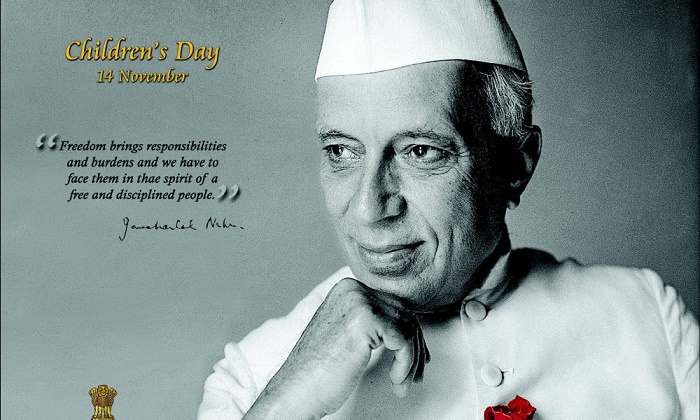
Image Credit: fablefeed.com
In Popular Culture
Shyam Benegal made this television series ‘Bharat Ek Khoj’ based on Nehru’s famous book, Discovery of India. Nehru was featured as prominent character in Richard Attenborough’s biopic ‘Gandhi’ and Ketan Mehta’s ‘Sardar’.
Death
In 1964, Jawaharlal Nehru suffered a stroke and a heart attack. On 27 May 1964, Nehru passed away. Nehru was cremated at the Shantivana on the banks of the Yamuna River, Delhi.



